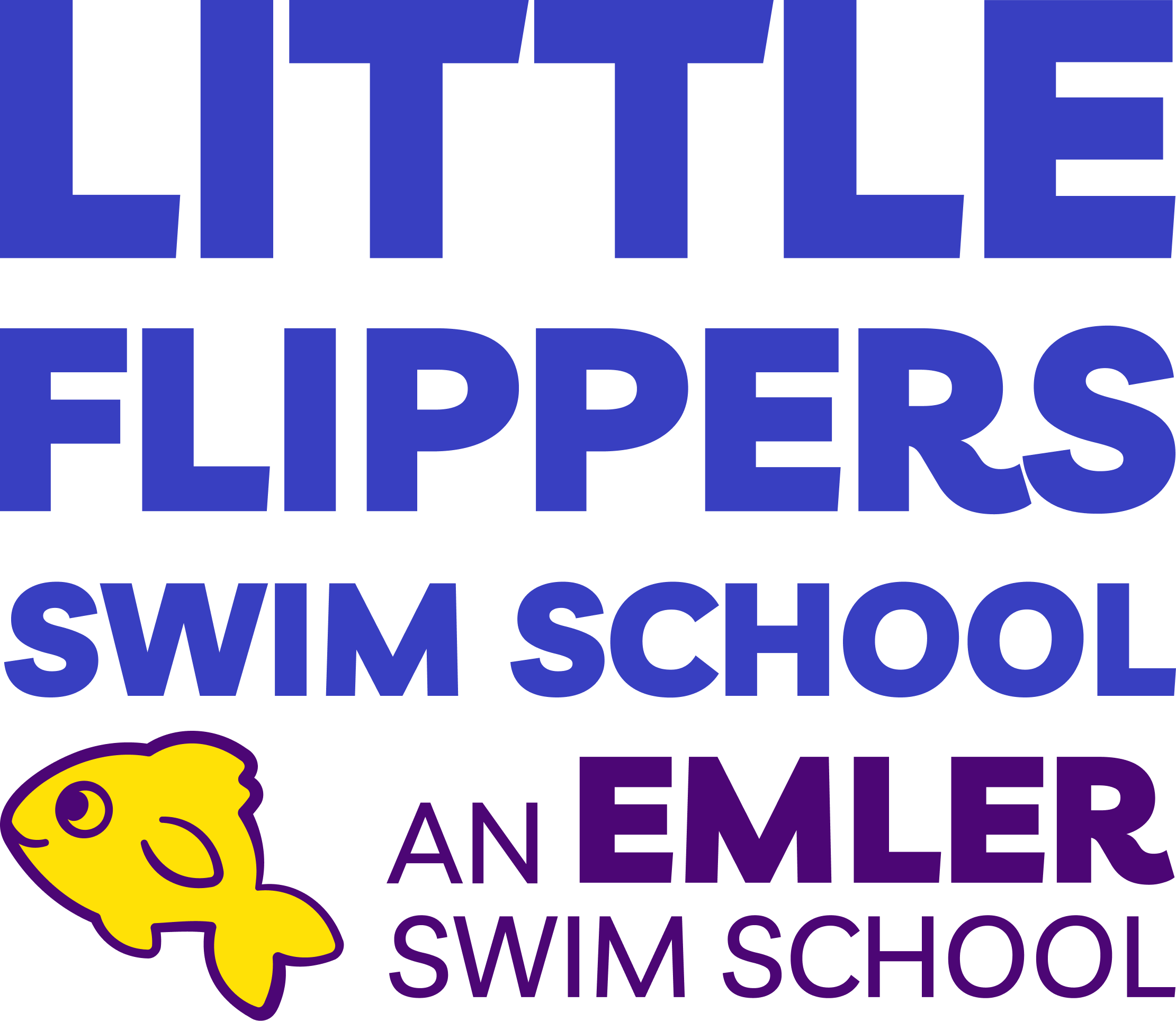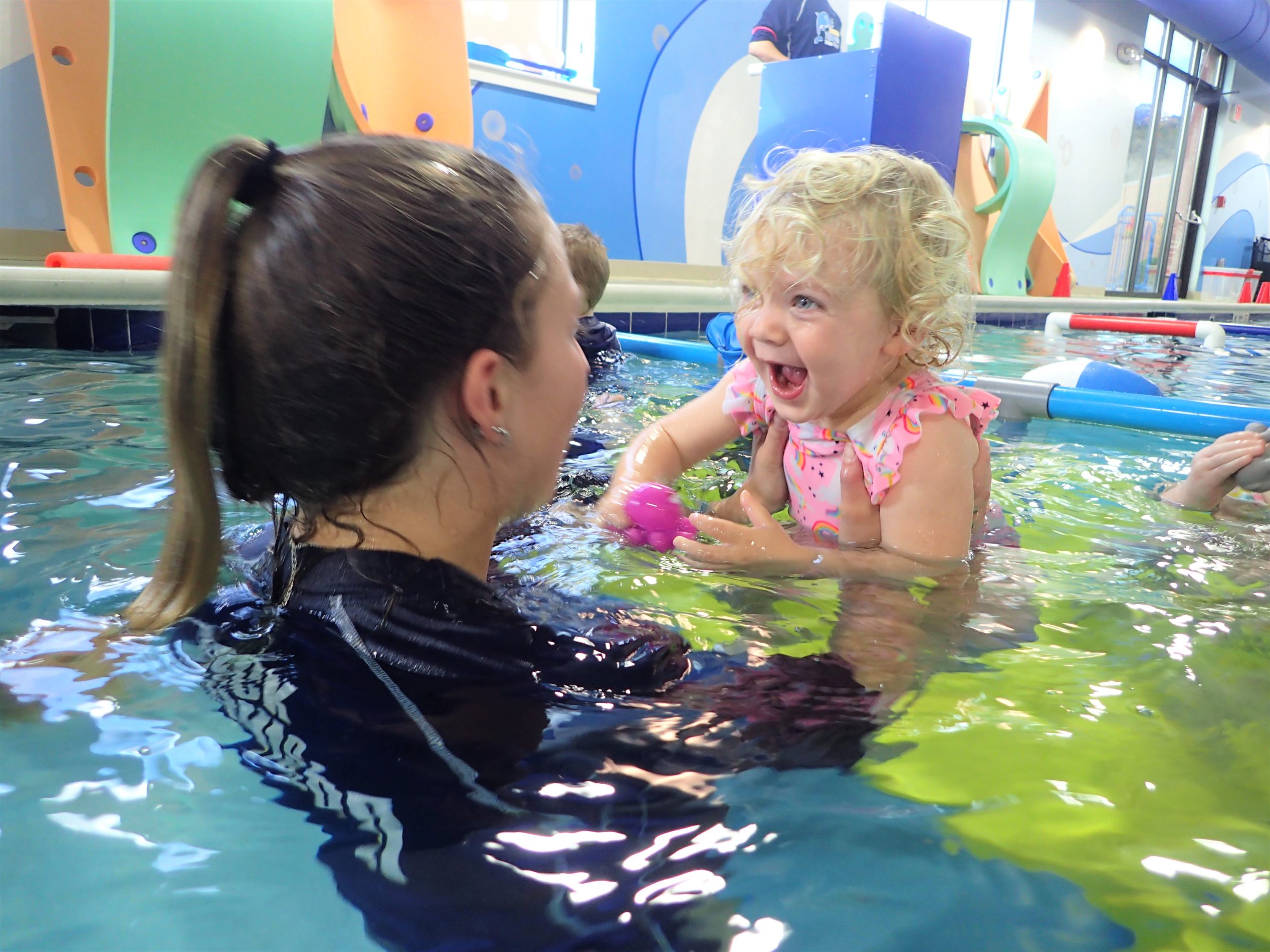From the womb to a newborn’s bathtub, your baby has always been exposed to water. It’s a very natural thing, but does this mean that it’s safe for babies to go into a pool? And if so, how old should they be when they do? Let’s find out below.
What Age Is Safe for Babies to Go Into a Pool?
There is no official age for taking babies into the pool, so it’s really up to the wisdom of the parent. Some choose not to take their little ones in until they are six months or older, but that doesn’t mean you have to wait that long. In fact, the Little Flippers swim lessons can introduce babies to pools as early as two months old.
With the right care and precautions, taking your baby into a pool early can provide many benefits. It can help reduce fear of water, set the stage for water safety, and provide some incredible bonding moments. And it’s hard to replace the smiles and wide-eyed wonder on a little one’s face as they discover the water.
In short, any age can be a good age to enjoy time in the pool. However, it’s important that you follow the precautions below.
Tips for Safely Enjoying Pool Time With Your Baby
Drowning is, of course, one of the concerns regarding babies and pools. Others include the chemicals and contaminants in the water, the temperature of the water, and exposure to the sun. We’ll discuss each below, along with tips for addressing them.
Safety
Drowning is a leading cause of death in children, so keeping your baby safe in the water is of paramount concern. Though it should go without saying, a baby should never be left alone in or around the pool. And the adult with the baby should not be under the influence of any drugs or alcohol.
Babies should always be within reach of their guardian. In fact, you should have them in your arms. If you are in a situation where the baby needs a life jacket or personal flotation device, only use one that is approved by the Coast Guard. As they grow and become strong swimmers, they can get more freedom.
It’s also important to stay in an area where your feet can touch the bottom. And it’s never a bad idea to become certified in CPR, just in case of a water emergency or other choking hazard ingestion.
Contaminants and Chemicals
Another concern is what exactly is in the pool’s water. Unmonitored pools that may have excessive chlorine can strip the natural oils, making the skin dry and itchy. It can irritate the eyes and cause skin conditions like eczema to flare up (see our guide to Hair and Skin Maintenance for Swimmers).
The trouble is that an untreated pool can also leave your baby exposed to waterborne pathogens and other issues. Consider using a pool like the one at Little Flippers Swim School, which utilizes a UV water purification system and is monitored closely. This leads to much lower levels of chlorine while still killing germs and viruses.
Temperature
Babies can’t quite regulate their body temperature like adults can, so they can quickly overheat in water that’s over 100 degrees Fahrenheit. It’s a good idea to avoid hot tubs and spas and be sure that the pool temperature is under the danger mark – as well as warm enough, of course – until they are at least three years old.
Sun Exposure
If you’re going to use an outdoor pool, it’s essential that you protect your baby’s skin from sun exposure, as little ones can burn easily. Sunscreen is important, along with sun hats and sunglasses. And you can purchase baby floats with built-in shade. Just be sure to continue to hold onto them if you use one.
As long as you take the precautions above, you and your baby should be able to enjoy pool time safely.

